The needs in Afghanistan: Afghanistan ranks 181 out of 182 nations on the UN’s Human Development Index. By most standards, Afghanistan is considered a failed state. For an Afghan national, obtaining legal representation for him/herself or for a family member who has legal matters pending in family court or who is accused of a crime— frequently without cause or proof—is a luxury they cannot afford, an idea they do not understand, a privilege far beyond their reach.
Building an Afghanistan that is a paragon of development is reliant on a number of factors – including security, education, prosperity, health — and our contribution, rule of law and human rights. After all, we have found that Afghans who are confident in their legal system are more likely to make societal contributions and encourage others to do the same. We have also found that protecting the basic legal rights of marginalized groups like women, the accused, and the indigent, is vital to empowering them and helping them solve critical problems in their lives. By ensuring competent legal representation to those in need, we are helping to slowly eradicate poverty and end the inequities faced by women.
The Court and Legal System: Years of war, internal conflict, and the oppressive rule by the Taliban in Afghanistan has decimated, amongst other sectors, country’s legal system. Although the legal field in Afghanistan is recovering, there is a strong need to rebuild Afghanistan’s legal infrastructure – including the training of judges and defense lawyers, the improvement and expansion of legal aid systems, and a greater focus on the proper application of the rule of law. Due to the fledgling nature of Afghanistan’s legal system, there remain many individuals in the margins who require support in order to access justice. These groups of people include the accused, the detained, the indigent, and people who cannot access justice due to stigma and social pressure – particularly women.
There is a critical need for legal aid, as one of the civil society organization JAFO has seen that often, more than 20 new clients approach courts in Kabul for assistance with their family and criminal court cases on a daily basis, and there are more than 50 ongoing new cases in the Kabul family court at a time. Most of these individuals requesting assistance – the majority of whom are women – have attempted to navigate the complex Afghanistan court system on their own, only to find that the country’s family and criminal courts simply don’t have the staff or structural capacity to provide them with legal assistance. Most Afghans simply do not know how to proceed with their case in court or how to provide a strong defense in their case; they are in dire need of a lawyer. The lack of response from and availability of judges and attorneys within Afghanistan’s family and criminal courts simply serves to reinforce the message that the formal court system is unable to address the growing needs of Afghanistan’s population.
Women: Women in Afghanistan are often in need of legal assistance to solve their problems relating to domestic violence, forced or early marriage, separation, divorce, dowry, inheritance, dissolution of engagement, and child custody. Despite the poor treatment of women throughout Afghanistan, we find that there is great hope to improve the status quo when using legal representation to empower women. Enforcing the rule of law and providing women with a compassionate advocate ready to solve their problems can be extremely effective in helping women escape from abusive relationships, retain custody over their children, overcome social stigma related to divorce and separation, develop economic independence, and become empowered to stand up for their rights.
While the formal legal system currently lacks the capacity to provide quality legal representation to marginalized populations, there are few alternatives. In particular, the traditional court system – the jirga – remains highly patriarchal, being composed largely of elderly men who are not trained in Afghanistan’s laws. Women are not able to participate in the decision-making process in the informal justice system. In addition, while the jirga’s decision may solve a problem temporarily, these decisions hold no weight in the justice system and thus do not prove effective as long-term solutions. As such, there is a strong need to empower women through better access to the formal court system, which proves a better alternative that is more respectful of women’s rights under the law. Still, when women approach the formal court system, they often have a very limited understanding of their rights or how to proceed with their cases.
Furthermore, in Afghanistan, if a woman has a legal conflict and appeals to a court, she does so in violation of Afghan cultural mores and thereby exposes herself to additional repercussions, which can be severe, humiliating, and violent – sometimes even resulting in disfigurement and death. A legal advocate can help to ensure that women are protected from such retaliatory measures.
The Accused: JFAO receives numerous requests for legal representation in criminal cases, including but not limited to murder, robbery, assault and battery, abandonment, adultery, rape, embezzlement, verbal and psychological abuse, and other cases of violence. While such cases are common throughout Afghanistan, what is shocking is the complete lack of representation for those accused of a crime. In the majority of cases, the accused in Afghanistan lack knowledge of their legal rights and find themselves in court without any legal assistance or support. The accused are frequently abandoned by their families due to shame—even when no crime has yet been proven.
Although the concept of government-provided legal representation in criminal cases is an established idea in western industrialized nations, the culture of having a defense lawyer is still uncommon in Afghanistan, especially in rural provinces like Kundoz, Badakhshan, Takhar, Paktia and Paktika. There is still a widespread perception that defense lawyers help criminals, and that defense lawyers are thus the enemy of the general public. We believe that it is important for legal organizations to work to change such negative perceptions and false stigma surrounding criminal accusations, by providing legal aid programs and informing the public on the importance of protecting their legal rights. We also believe that criminals and the accused still have basic human and legal rights that should be respected in order to ensure fair trials and properly enforced rule of law.
Such negative attitudes towards defense lawyers are unfortunately prevalent despite the fact that access to a lawyer for the accused in Afghanistan has been mandated by the Afghanistan constitution after the fall of the Taliban regime. According to Article 31 of the Constitution of Afghanistan, January 3, 2004:
The Afghan civil society legal aid organizations consider providing legal assistance to indigent Afghans of paramount importance in rebuilding this country. And while Article 31 of the constitution guarantees free state-provided legal representation to the indigent accused as well as a recent change to provide free lawyers to women and children in civil cases, the reality is that these constitutional rights have not been implemented throughout Afghanistan. Indeed, the government has just a few defense lawyers and civil attorneys; this is simply insufficient to meet the demand and the needs. Many of the existing defense lawyers and civil attorneys are also not professional, responsible, or well trained; most of the time, they do not attend judicial sessions with their clients. We need to improve the state of indigent criminal and civil defense in Afghanistan. Here, we see a tremendous opportunity to enforce the rule of law by ensuring that the laws are not simply in the books – but are translated to reality on the ground.
- Describe situational context: Due to three decades of fighting, Afghanistan has been financially and spiritually damaged. The educational, healthcare, and legal sectors have all been destroyed as a result of war, and the most vulnerable victims of the conflict have been Afghan women and girls. Afghan women have long been deprived of equal access to education, work, and opportunity. Under the Taliban regime, conditions for women were especially stark; women were not allowed to leave the home, did not have the right to an education, and essentially lived like prisoners. Despite the current political opening and greater freedom for women, women still lag far behind men on a range of indicators including health, education, civil rights, and financial independence. For the most part, women still lack equality in education and career opportunities in comparison to men. The government fails to provide education for most women, particularly when it comes to international languages and computer technology, and women are often kept at home due to tradition and lack of economic opportunity. Women must be empowered if Afghanistan is to grow economically and progress as a nation. As a result, we at civil society legal org want to provide these opportunities to women as a civil society organization.
Even as we begin to rebuild our country and take advantage of the current political opening, it is difficult to repair the harm that has resulted from the conflict, due to continuing obstacles such as lack of security, poor economic growth, and the persistence of customs that undermine the rights of women. The lack of equality between men and women is pervasive, and sadly many families are more focused on ensuring the success of their sons than their daughters. Often, boys are provided with educational materials and are allowed to attend school, while girls are denied the same opportunities. These obstacles continue to prevent Afghan women and girls from attending school and receiving an education.
Decades of war have destroyed and damaged the government and infrastructure of Afghanistan, especially the five years of the Taliban regime, which systemically denied women access to their rights. For the first time, and with the assistance and cooperation of the international society, the people of Afghanistan have voted for their president through democratic elections. However, we have not experienced elected government, perhaps ever, it is crucial for us to see the political participation of women and men in parliamentary elections, as we did in the first and second presidential election in 2004 and 2009.
Therefore, we need to increase the civic education and legal awareness of people to help them understand their roles and responsibilities in the elections process.
Further, we have witnessed the first and second democratic presidential elections in this country, which has been a new phenomenon, thus, the Afghan people did not have prior experience in this regard, and for the first time they went to the polls, through which, they selected their president.
After ratifying the constitution, the right to elect and select has become the basic rights of people. There are still many obstacles which disallow women from fully accessing their rights to vote such as traditional values and the lack of education (illiteracy). It is worth mentioning that illiteracy and the lack of awareness are the main cause of Afghans participating in the elections, which incorrectly appears as apathy. The lack of security is another factor of preventing the Afghan people, particularly women, from voting.
Based on the above mentioned reasons and causes, the civil soceity is seeking to carry out the right services for the Afghan society and it aims to implement the projects through which the Afghan people can be aware of their fundamental rights in this country. In order to go the voting centre to cast ballots, they should first take the voting card, and by receiving the voting cards, they will participate in the Afghan elections and will select their capable parliamentarian members among the other candidates too.
Most of the national and international organizations have focused in the capital of Afghanistan, therefore, people in the remote area haven’t benefited from them as much as the people in the capital. The unsecured situation, local culture, social, economical situation, especially decades of local war and the lack of access to the media in the other provinces have caused the people not to have access to their education and humanitarian rights, which leads to the lack of understanding about their basic and fundamental rights, such as the rights to education and the rights on voting and nominating.
This lack of awareness on their rights have cause them not to be interested to go to the ballot box for voting and they don’t know about the importance of their voting right in the destiny of their country.
As we experienced in the two past elections, less than two third of the population participated in the election voting process and the reason is their lack of understanding—simply put.
So, to encourage Afghan people to participate in political affairs and Afghanistan political life, to promote the rule of law, to institutionalize democracy in Afghan society, this type of workshop is needed and vital.
The three and half decades of war destroyed and damaged the governmental infrastructure of Afghanistan, especially the five years of the Taliban regime which had denied women the access to their rights. For the first time with the assistance and cooperation of the international society, the people of Afghanistan have voted for their president through secretes and directs voting. However, we had not experienced any elected government in the past, it is extremely crucial for us to see the political participation of women and men in electing the president, as we did in the first and second presidential election in 2004 and 2009. Therefore, we need to increase the civic education and legal awareness of people to understand their roles and responsibilities in the elections process.
Furthermore, we have witnessed the first and second elections in the country which has been a new phenomenon in this country, thus, the Afghan people did not have prior experience in this regard and for the first time they went to the voting boxes through which they selected their president. After ratifying the constitution, the right to elect and select has become the basic rights of people. There are still many obstacles which disallow women from fully accessing their rights to vote such as traditional values and the lack of education (illiteracy). It is worth mentioning that illiteracy and the lack of awareness are the main cause of voters’ apathy. The lack of physical security is another factor of preventing the Afghan people, particularly women, to vote.
Based on the above mentioned reasons and causes is seeking to carry out the right services for the Afghan society and it aims to implement the projects through which the Afghan people can be aware of their fundamental rights in the country. In order to go the voting centre casting the ballots, they should first take the voting card and by receiving the voting cards, they will participate in the Afghan elections and will select their capable parliamentarian members among the other candidates.
The UN’s data indicates that women in Afghanistan have some of the lowest levels of literacy in the world and some of the highest rates of physical, emotional and verbal abuse. The afghan civil soceity aims to ensure that women and girls are empowered to know and assert their political, economic, and family law rights. Several decades of war and the draconian rule of the Taliban regime has decimated Afghanistan’s infrastructure. Because of Afghanistan’s history and the status of women in our country, we believe in the importance of advocating for the following rights of women:
Political rights: Women in Afghanistan have traditionally been isolated from all forms of decisionmaking— and especially so, in selecting leadership. The idea of women running for public office is new in Afghanistan, a country where women have historically been beaten and even killed for aspiring for influential positions. ACSO (Afghan Civil Soceity Organizations) intends to help Afghan women overcome a fear of the danger associated with public participation. We hope our programs can encourage women to join the political field, or at least to increase their involvement in the democratic and political process.
Fundmental Rights: Many of the cases we deal with in the legal advice bureau involve women’s rights within the family. We see numerous cases of victims of domestic abuse and violence. Most of these women are illiterate and do not know their rights, or how to proceed with their case. By educating women on their rights under family law, we can encourage women to take active steps to empower themselves and escape the cycle of abuse. Many other cases we deal with in Kabul deal with economic rights such as inheritance, dowry, and alimony. We feel that many women lack knowledge of their financial and economic rights, and as a result do not get what they are entitled to. By educating women and men as well about the financial and economic rights of women, we can ensure that women are awarded what they are entitled to under the law.
The challenges that come with integrating Afghan women into the political process are complicated, almost daunting.
Women in this culture have traditionally been isolated from all forms of decision making—and especially so, in selecting leadership.
The UN’s data indicates that women here register some of the lowest levels of literacy in the world, and sadly, some of the highest rates of physical, emotional and verbal abuse.
Some of the immense challenges ACSO intends to address involve helping Afghan women overcome a realistic fear of the danger associated with public participation in societal leadership selection.
The idea of women running for public office is a new concept in Afghanistan, a country where, women have been historically beaten, mutilated, disfigured and even killed for aspiring to significantly less influential positions in society—sometimes, simply for seeking access to education or vocation.
Decades of war, and too, the draconian rule of the Taliban regime have decimated the infrastructure of Afghanistan—keeping this once magnificent county centuries behind the modern developed industrialized world.
The Taliban’s senseless and violent oppression of women is well-documented and well-known throughout the international community.`
The Taliban regime imposed a systemic gender discrimination policy, with impunity, and has given no indication of reforming that policy.
Afghanistan has a budding democracy, and to strengthen this democracy, we must increase citizens’ belief in their government. The rule of law and a fair, reliable and equitable formal justice system that respects human rights is an integral component of democratic governance and society. Without the rule of law, individuals tend to lose faith in their government and the very idea of democracy, often turning to informal justice systems – which are highly patriarchal and often perpetuate further abuses towards women and girls. In rural areas, individuals who have no trust in the Afghan government and democracy may even turn to insurgency groups to fulfill the gap they perceive in services, stability and quality of life.
On the other hand, if Afghan people begin to trust their justice system, they will have a stronger belief in their institutions and accordingly, the ability of democratic governance to provide for its people.
The Current Legal Situition in Afghanistan:
- The corruption in all legal departments protect the powerfuls and the criminals
- The defence lawyers are still considered the defenders of the criminals
- Legal cases are pending for very long time in the courts due to the high corruption rate
- Women are the victim of Domestic violence, legal system and cultural bounds
- Jirgas the local councils are still ruling in most rural and remote areas of the country
- Due to the corruption and many legal admin red tapes people depend on the local jirgas and traditional courts
- Laws are violeted by warlords, the wealthies and the high ranking officials
- Courts delay the cases for bribe, or influenced by the powerful ones
- The lack of capacity in the legal, judiciary and law enforcing departments on central and provincial levels
- Lack of peoples awareness from their legal and judicial rights due to high illiteracy rate and lack of access to media
- Long term of war and violence in the country has had negative impacts on the rule of law in the country in general
- The very tough and heavey beaurocracy in reaching to their leagal rights
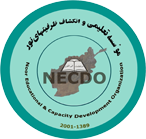
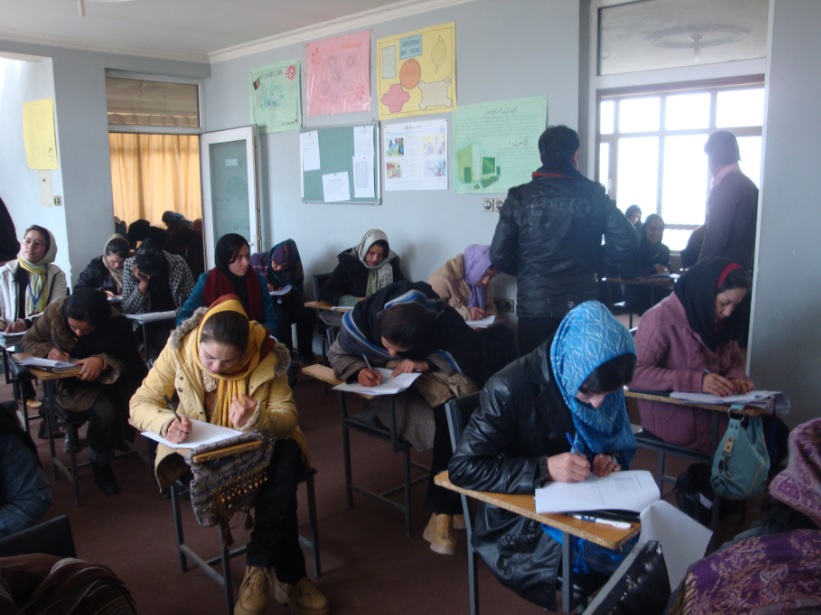
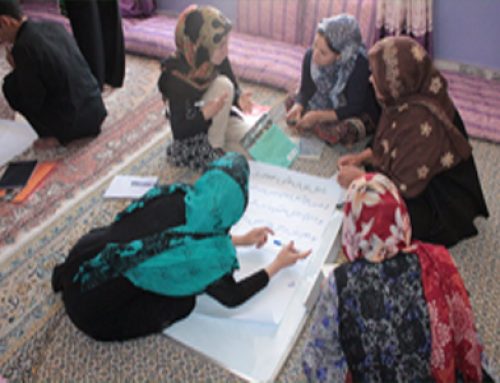
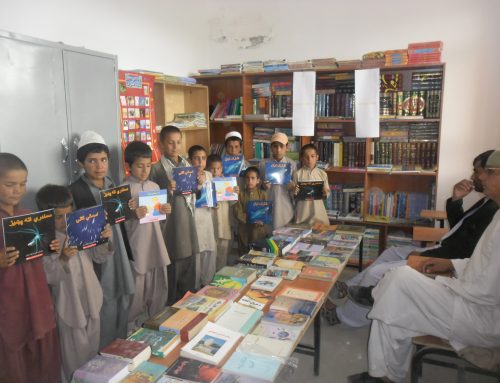
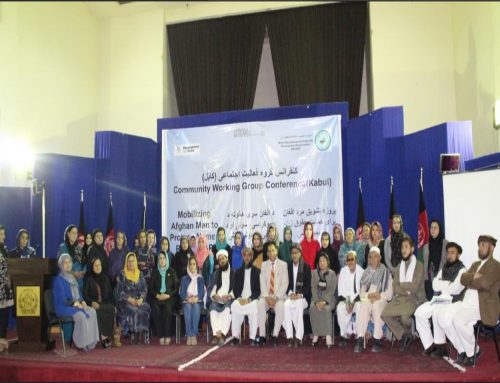
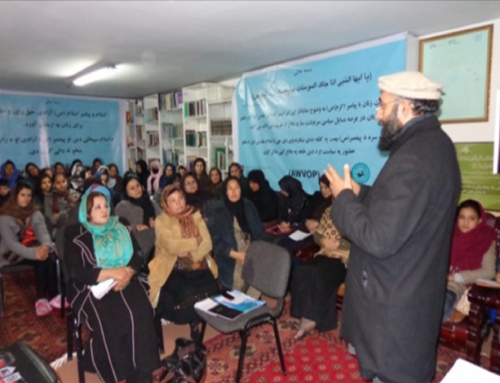
Leave A Comment